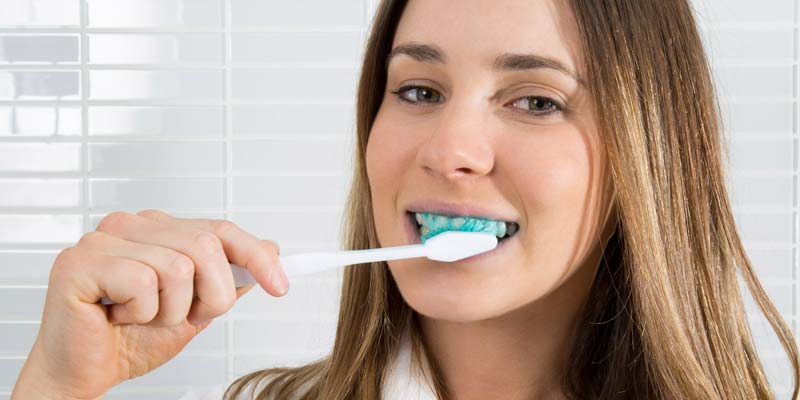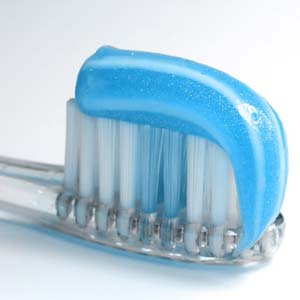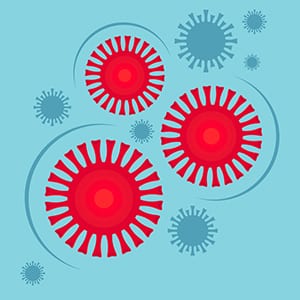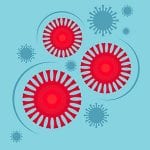After our post on whether dentists recommend flossing (and favorite your Los Angeles dentist does), we decided to take a closer look at brushing as well.
Of all morning habits few tasks have more effect on long-term health and wealth than brushing one’s teeth. Often those of us who grew up without being initiated into this essential morning ritual by their parents, as adults end up spending countless hours (and thousands of dollars) in dentists’ chair.
Regular Brushing Saves Pain, Time, and Money
Please learn from their experience. Toothache is extremely painful; seeing a dentist can be extraordinarily expensive; and if you happen to fall on hard times, very few states cover dental care for adults on Medicaid and Medicare doesn’t cover dentistry at all. So, forget last year’s flap over flossing: the most essential ingredient to good oral health is a regular regime of brushing.


When to Brush Teeth
To address the least controversial question first, the ideal brushing moment in the morning is right after breakfast and in the evening it’s right before bedtime. But timing is just the beginning!
It’s All About Toothbrush
Bristles of a toothbrush do the heavy lifting of removing the food debris that can accumulate around the surface of the teeth, helping to prevent plaque from building up at the gum line. A toothbrush is a toothbrush is a toothbrush – although electric toothbrushes may seem more effective.
A brush with a small head is best for reaching into the tight quarters at the back of the mouth. The most important thing is that it be clean, so rinse your brush with hot water after it’s been in your mouth. You should replace your toothbrush (or brush head) once every three months or so. More frequently if you’ve had a viral infection like the flu.
How Much Toothpaste to Use
Toothpaste is a mere adjunct to the hard-working bristles, but its mild abrasives and surfactants make the toothbrush’s work more efficient. One thing: when it comes to loading up your brush, forget the generous swirls of dentifrice shown in toothpaste commercials—all that’s needed is a dab. Using more does no one, except the toothpaste manufacturers, any good.
How to Choose a Toothpaste
A scouting trip to the toothpaste section of a supermarket or a drugstore reveals toothpaste brands making five broad promises about their products: that they’ll prevent cavities, fight gingivitis, combat sensitivity, whiten teeth, and freshen breath.
Fluoride found in toothpastes, gels, and rinses has been proven to fight tooth decay. Topical application keeps the fluoride up against the surface layer of the teeth, where it can counteract the cavity-causing effects of acid from the sugars and carbohydrates we consume. This is a very good thing.
Gum Desease and Toothpaste
Products that promise tartar control can be effective in preventing plaque from hardening on teeth and gums. This tartar, or calculus, collects above the gum line and causes the soft tissues to swell or bleed, a condition known as gingivitis. Tartar is what dental hygienists scrape off when you get your teeth cleaned.
If your dental hygienist swears under her breath when she looks inside your mouth, or if the sink is as bloody as a Game of Thrones battleground scene after you brush, you might want to use an anti-gingivitis toothpaste to hinder the attachment and hardening of plaque and tartar.
Sensitivity and Toothpaste
If gum disease, excessive brushing, acidic foods and drinks, or tooth grinding wear down tooth enamel, teeth can become sensitive. This can make brushing painful and turning treats like ice cream into torture. Desensitizing toothpastes don’t rebuild that damaged dentin, but they contain chemicals that block pain signals to the nerves of the teeth. If hot or cold drinks sometimes make you scream, it’s a good idea to use toothpaste that promises to tone down sensitivity, but only a dental professional can fix the underlying problem.
Whitening and Toothpaste
Over-the-counter toothpastes and rinses can’t really be said to whiten teeth effectively. A higher concentration of peroxide is needed for that and the bleaching agent must be held against the teeth. But brushing can remove some superficial stains, for example from tea and coffee.
Whitening toothpastes won’t have any effect on caps, crowns, veneers, or fillings, nor will they counter discoloration that results from injury or medications. But if your daily Starbucks is robbing your smile of its sparkle, by all means, try a whitening paste or gel.
Toothpaste and Chemicals Interactions
Do we need to worry about interactions between the various ingredients that provide these cavity-fighting, gum-disease-preventing, sensitivity-battling, stain-removing, breath-freshening benefits? The answer is a resounding no. Active ingredients make up a tiny portion of the contents of the toothpaste tube and they can all get along just fine.
Prescription Toothpaste
The apparently endless permutations of benefits promised by the products in the toothpaste aisle exist for the same reason there are an infinite variety of breakfast cereals or soft drinks. Adding new flavors, colors, and features creates new products that get more retail shelf space. And the more likely shoppers are to see the brand, the more likely they are to buy it.
On the bright side, the toothpastes’ promises to freshen breath are usually absolutely, totally, 100 percent true.
If you feel that you need toothpaste or mouthwash that packs more healing punch and is specifically designed to address your dental condition or symptoms, ask one of our dentists next time you visit our office. We can either sell or prescribe you one that will work best for you and many health care plans may cover dentist-prescribed toothpastes and mouthwashes.
Your Los Angeles Dentist Recommends to Brush Daily
As your favorite Los Angeles dentist, we urge you brush daily and to visit our centrally located dental office regularly for semi-annual dental cleanings. While daily brushing and flossing are fundamental to good oral hygiene, only the semi-annual visits to your Los Angeles dentist’s office for dental cleaning can ensure complete removal of tartar.
For more information about dental cleaning, prescription toothpaste, and to schedule your appointment with our certified dental hygienist and/or dentist, please call us at 213-486-0006 or make your appointment online.











